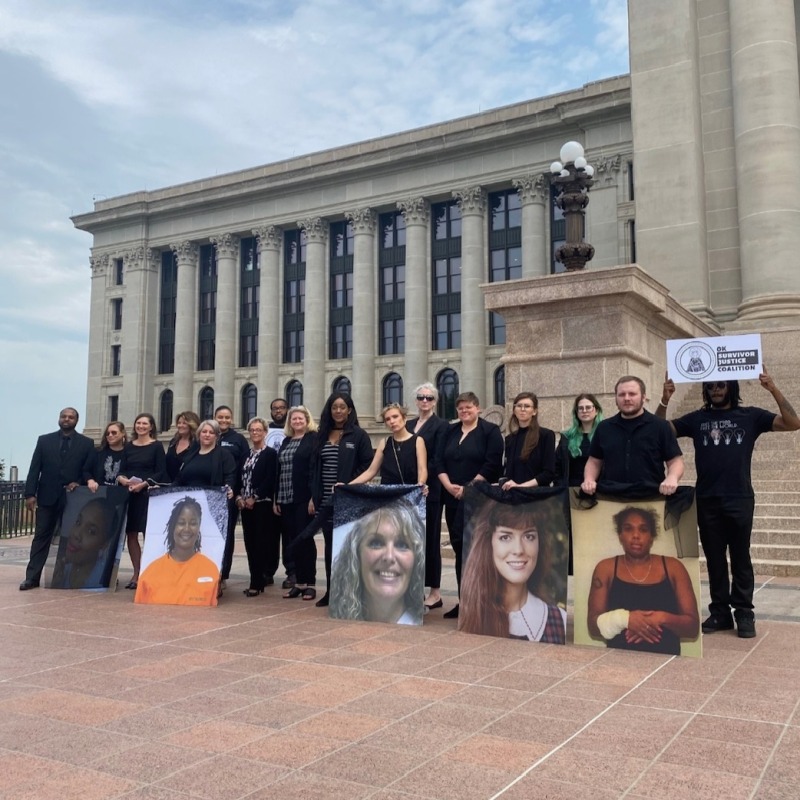

State Campaigns to End Extreme Sentences
The Sentencing Project co-powers on state-level advocacy efforts across the country to advance sentencing reforms that promote community safety and reduce ineffective overreliance on incarceration.
Explore each of our state campaigns below.
State Campaigns
The Sentencing Project supports state-level advocacy efforts across the country, with particular focus in nine jurisdictions: Louisiana, Maryland, Massachusetts, Michigan, New York, Oklahoma, Rhode Island, Vermont, and Washington, DC.
We advocate for the adoption of evidence-based sentencing policies that make the criminal legal system more equitable and humane and advance reforms that promote community safety while reducing ineffective overreliance on incarceration. State campaign activities include public education through digital ads and strategic communications, lobbying, coalition leadership, public event coordination, co-powering with incarcerated individuals and groups, and tailored research and data analysis. We also fund local grassroots efforts with our Racial Justice Fund. These efforts build on existing second look laws such as judicial review of sentences and expanded parole opportunities.
Scroll down to learn more about each of our campaigns.
Oklahoma: Survivors’ Justice Act
Oklahoma has long been a national leader in the incarceration of women and has the highest rates of domestic violence in the country. The Sentencing Project has collaborated with local experts and justice-impacted persons to pass a law that addresses these failures of justice: the Oklahoma Survivors’ Justice Act. This is the first such law in Oklahoma, and one of few in the nation, that caps sentences at 30 years and allows for resentencing for violent offenses if abuse was a significant contributing factor in the underlying offense. The Sentencing Project will work to implement this landmark legislation as a first step in curbing extreme sentencing in one the nation’s most conservative states.
-
 WATCH
WATCHWebinar: Why Are We Incarcerating Domestic Violence Survivors?
Click here to watchAdvocates and researchers discuss how the growth of mass incarceration drives the criminalization of survivors of domestic violence.
-
 WATCH
WATCHFight for Incarcerated Survivors
Click here to watchKeabreauna Boyd's abusive partner cut her belly while she was 8-months pregnant. She fought back to save her baby's life and her own. Now she's serving a 20-year sentence in prison.
-
 In the news
In the newsThe Guardian: Oklahoma law to allow resentencing for incarcerated domestic violence survivors
Read the articleOklahoma's governor, Kevin Stitt, signed Senate Bill 1835 - marking a radical change for incarcerated domestic violence survivors in the state.
Michigan: Second Look
Michigan has made strides to downsize its prison population, but these efforts have fallen short with 30% of the state’s prison population having already served at least 10 years and nearly half of those with extreme sentences being at least 50 years old. The Sentencing Project and its partners have spearheaded robust legislation, Michigan’s Second Look bill, which we will fight to pass in the 2024 legislative session.
Testimony on Michigan’s Second Look Sentencing Act
House Bills 4556 – 4560, which would allow sentence reviews for those who have served 10 years or longer, are data-driven public safety reforms that would would help Michigan make a much-needed course correction. Almost one-third of Michigan’s prison population has already served at least 10 years—a higher proportion than the national average. Given that racial disparities increase with sentence length, House Bills 4556 – 4560 would also set Michigan towards a path of correcting the disproportionate imposition of lengthy sentences on its Black citizens.
Hear from our incarcerated partners in Michigan
Are you the same person that you were 20 years ago? This powerful video explains why people serving life without parole sentences deserve a second look. Michael Tubbs, Everett Jackson, and Bernice Starks describe their personal transformation from when they first entered prison, and the work they are doing inside and out to better their community.
Join the Second Look Movement in Michigan!
Join us if you’re interested in contacting legislators, signing petitions, and aiding in the movement for second look in Michigan!
Michigan: Second Look
Michigan has made strides to downsize its prison population, but these efforts have fallen short with 30% of the state’s prison population having already served at least 10 years and nearly half of those with extreme sentences being at least 50 years old. The Sentencing Project and its partners have spearheaded robust legislation, Michigan’s Second Look bill, which we will fight to pass in the 2024 legislative session.
Hear from our incarcerated partners in Michigan
Are you the same person that you were 20 years ago? This powerful video explains why people serving life without parole sentences deserve a second look. Michael Tubbs, Everett Jackson, and Bernice Starks describe their personal transformation from when they first entered prison, and the work they are doing inside and out to better their community.
Testimony on Michigan’s Second Look Sentencing Act
House Bills 4556 – 4560, which would allow sentence reviews for those who have served 10 years or longer, are data-driven public safety reforms that would would help Michigan make a much-needed course correction. Almost one-third of Michigan’s prison population has already served at least 10 years—a higher proportion than the national average. Given that racial disparities increase with sentence length, House Bills 4556 – 4560 would also set Michigan towards a path of correcting the disproportionate imposition of lengthy sentences on its Black citizens.
Join the Second Look Movement in Michigan!
Join us if you’re interested in contacting legislators, signing petitions, and aiding in the movement for second look in Michigan!
Rhode Island: Second Look and Repealing Life Sentences
Until 2021 Rhode Island mandated that anyone serving life without the possibility of parole was civilly dead, meaning they had no right to legal recourse, marriage, etc. This excessively cruel law is one of the many remnants of Rhode Island’s reliance on the use of extreme sentences, which disproportionately impact communities of color. For the last three years, The Sentencing Project has been working with a broad coalition of over 84 organizations, directly impacted families, and incarcerated persons to address the inhumanity of the state’s sentencing policies by implementing Second Look Legislation. While our proposed bill did not pass in its first year, we will return with renewed fervor in 2025.
-
 In the News
In the NewsThe Providence Journal: State lawmakers field bills to empower judges to rethink long sentences
Click to read the articleState lawmakers are weighing a proposal that would allow people serving long sentences to ask a judge for a “second look” at their punishment after 10 years.
-
 State Advocacy
State AdvocacyRhode Island Supreme Court Affirms Emerging Adult Sentencing Reform
Learn moreMario Monteiro has gained the right to a meaningful opportunity for parole thanks to a recent Rhode Island Supreme Court ruling. The Sentencing Project joined with the Juvenile Law Center, the Gault Center, the National Association for Criminal Defense Lawyers, and Prison Policy Initiative in an amicus brief in support of parole review at 20 years.
DC: Defending and Advancing Sentencing Justice
The District’s ambitious approach to sentencing reform, including one of the strongest second look laws in the country, has repeatedly placed it in Congress’s crosshairs. The Sentencing Project advocates for the District’s autonomy to pursue evidence-based sentencing reform laws and policies. The Sentencing Project also urges the DC Council to build on the District’s sentencing reform successes, by expanding eligibility for second looks and abolishing mandatory minimum sentences.
-

Letter in Support of Washington DC’s Revised Criminal Code Act of 2022
Read the letterMany of the bill’s provisions would bring DC’s criminal penalties closer in line with criminological evidence on public safety, improve fairness and proportionality and advance racial justice in the criminal legal system.
-
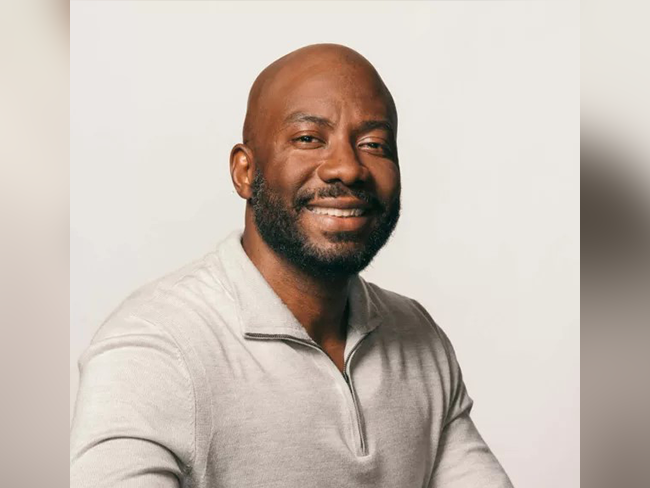
Randall McNeil and DC’s Second Look Law
Learn more about Randall's storyWith the expansion of the Incarceration Reduction Amendment Act in 2020, Randall McNeil was finally given an opportunity to petition for his freedom. In August 2022, McNeil was granted his freedom after 24 years in prison.
-
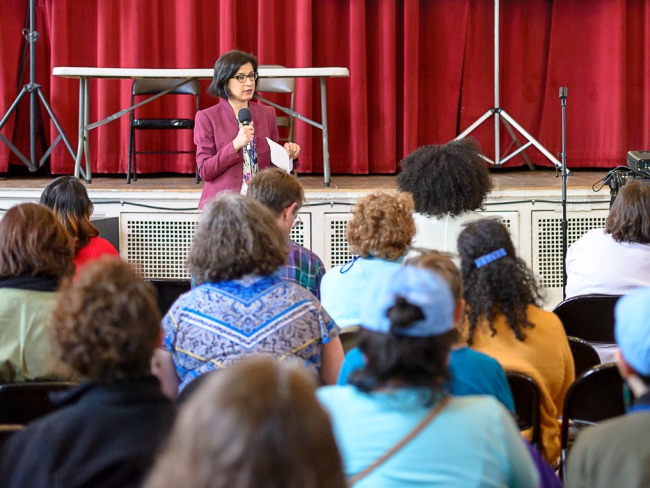
Testimony on DC’s Criminal Code Reform Commission
Read Nazgol's testimonyThe Council of the District of Columbia should protect the Criminal Code Reform Commission, which strengthens DC lawmaking and helps advance the cause of justice, equity, and autonomy.

New York: Second Look, Mandatory Minimums, Elder Parole, and Good Time
It has been over 50 years since the Attica uprising, but the issues of injustice that caused it have not been adequately addressed, so we will be pushing for passage of five bills in the 2025 legislative session. Our campaign associate, Warren Allen, who is himself a second look recipient, is working with Communities Not Cages and the Release Aging People in Prison campaign on five bills: The Second Look Act, Earned Time Act, Fair and Timely Parole Act, Elder Parole Act, and Marvin Mayfield Act (to eliminate mandatory minimum sentences). These bills taken together address a graying prison population, racial inequities due to mandatory sentence application, and allow rehabilitated persons a second chance at life.

Vermont: Second Look
Despite having a comparatively small carceral population, Vermont disproportionately exposes its citizens of color to extreme sentencing, a legacy of policies born out of the racist eugenics movement which sought to re-reengineer the population. The Sentencing Project, along with its state partners, urges the state of Vermont to pass the Second Look Act in the 2025 legislative session in order to align legislative posture with policy. Our planned advocacy activities in the state include organizing the incarcerated community and their families to demonstrate rehabilitation, educating the public about the history of incarceration and racism in Vermont, and lobbying the state legislature to take action on our second look legislation.
Massachusetts: Second Look and Abolishing LWOP, Joint Venture
Massacushetts has a strong movement to address the core issues that drive mass incarceration such as repealing life without the possibility of parole, advancing second look, and curbing extreme and racially disparate sentencing such as through the state’s felony murder law. The Sentencing Project is playing a key role in educating the legislature about the necessity of these reforms and will be joining allies to fight for their passage.
-
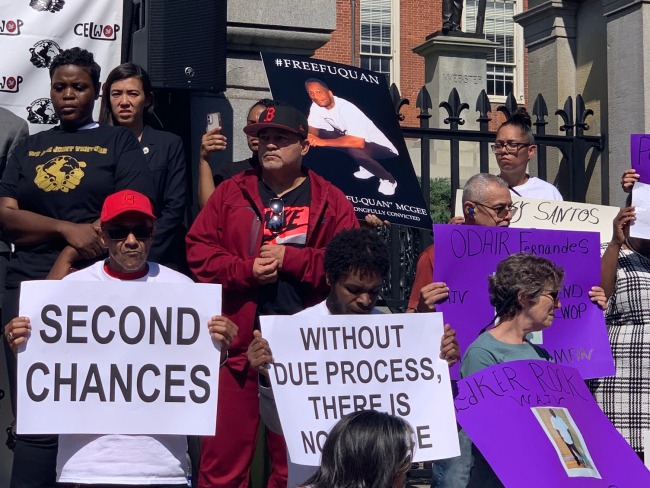
Testimony in Support of Second Look Legislation in Massachusetts
Read Nazgol's testimonyThe Sentencing Project’s Nazgol Ghandnoosh testified before the Massachusetts Legislature in support of Second Look legislation that would allow people 25 or younger at the time of their offense to petition for resentencing after 10 to 15 years of imprisonment and allow others to the same after 12 to 18 years of imprisonment.
-
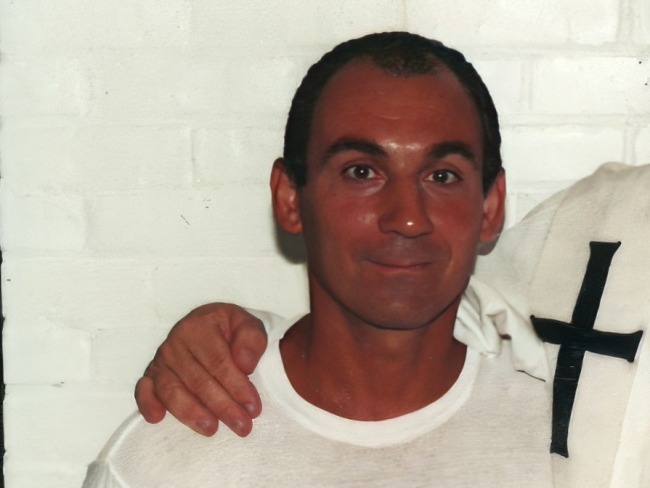
William Florentino
Read Left to Die in PrisonWilliam Florentino was sentenced to LWOP in Massachusetts at 20-years-old following his participation in a robbery in 1977 in which his accomplice committed murder. He has been in prison for over 46 years and is now an elderly man. Learn more about William and other emerging adults (age 25 and younger) who are sentenced to life without parole.
Louisiana: Defending Reforms and Revising Second Degree Murder Statute
Louisiana is the most prolific incarcerator in the country, and the world. It is known for its long and dark history of slavery, prejudice, and incarceration. One in five people in Louisiana’s prisons are serving a sentence of 50 years or more, or life. Today, politicians are pushing for a return to racially-biased policies and extreme punishments that research shows are not effective crime deterrents, but we continue to fight to push reform and sustain efforts to bring balance to the second degree and felony murder statutes. The arch of history is long in Louisiana, but along with our partners, we bend it toward justice.
-

The Second Look Alliance
Click here to watchChristi Cheramie was just 16 when her boyfriend murdered someone- and she was sentenced to life without parole. Then a law changed. Watch this video from our impacted partners at Second Look Alliance.
-

Andrew Hundley
Click to hear from AndrewSentenced to life without parole at 15, Andrew Hundley’s sentence was one of the first of more than 200 people in Louisiana who secured their release under landmark Supreme Court rulings. He now works at the Louisiana Parole Project, helping the formerly incarcerated succeed on the outside.
Support from The Sentencing Project has been invaluable. From policy insights to expert testimony, The Sentencing Project has played a vital role in our campaign to overhaul New York's unjust sentencing laws. By providing a national perspective, The Sentencing Project has also effectively demonstrated multi-state momentum for these issues and convinced many stakeholders in New York that the time is now.

